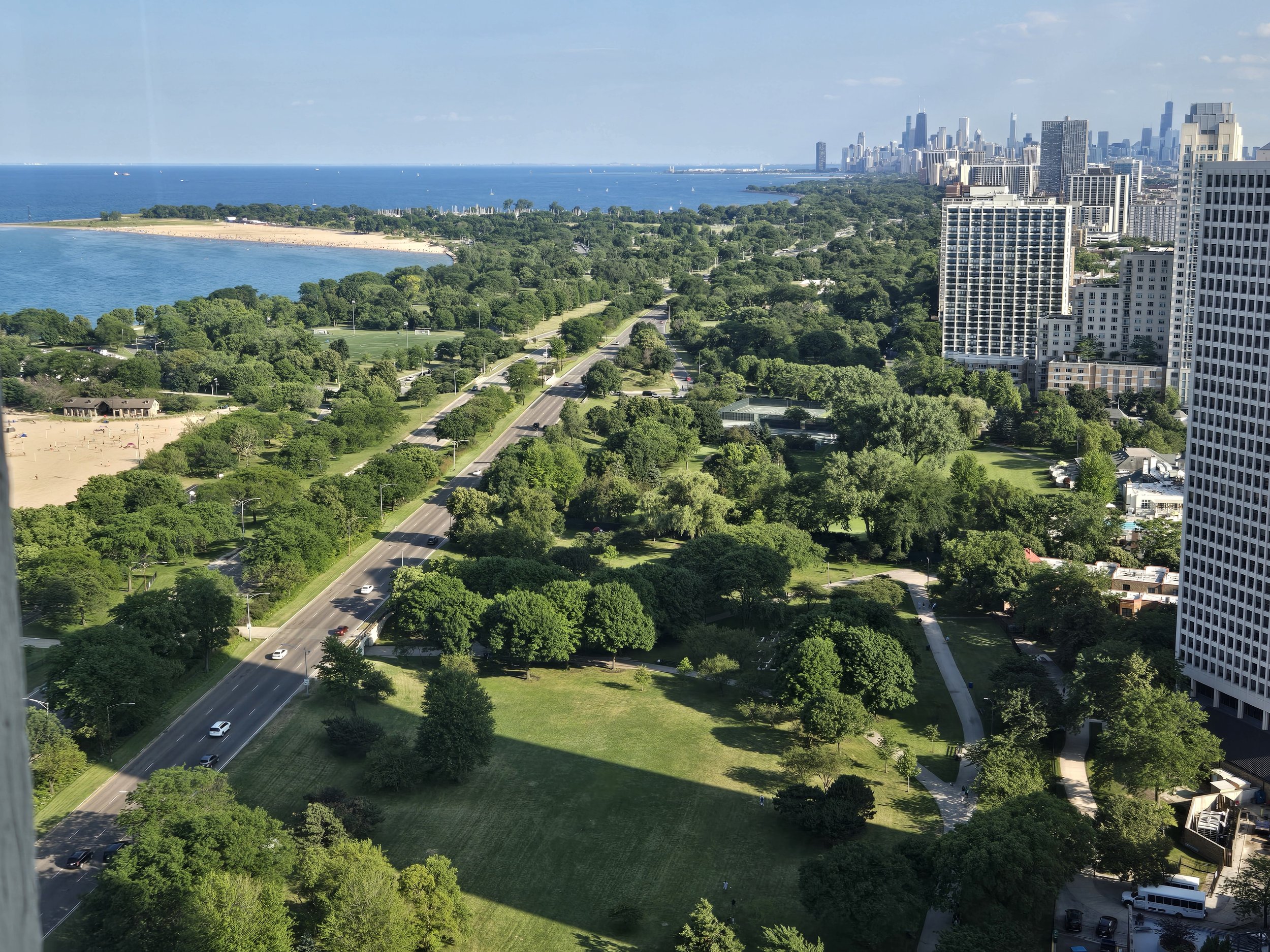Redefine the Drive
Photo Credit: Ken CampbellAld. Manaa-Hoppenworth joined the other northside lakefront alders to call for work on the ReDefine the Drive project to be halted in a recent Chicago Tribune opinion piece. She joined Ald. Clay, Ald. Knudsen, and Ald. Lawson in pointing out that any improvements to DLSD should make lake access safer and easier, improve safety and acccessibility of non-car transit like bikes and trains, and be completed with sustainability in mind. Read the full article from the Tribune below. At the bottom of this page, find a summary of House Resolution 0438 which the Tribune piece was written in support of.
Aldermen: Halt all work on the DuSable Lake Shore Drive project
As City Council members, in coordination with the group Chicago, Bike Grid Now!, we have questions and concerns for the Illinois Department of Transportation regarding the state of the North Jean-Baptiste Pointe DuSable Lake Shore Drive Study and Redefine The Drive project.
Because of the trajectory of the project as an urban highway without significant mass transit elements, we are calling for a halt to planning events, public meetings and other work related to the project. We believe the project would benefit from meetings with members of the City Council to discuss our oversight role as elected officials and our vision for DuSable Lake Shore Drive.
Together, our growing coalition represents hundreds of thousands of Chicago residents. We consider Lake Michigan among our city’s greatest resources. DuSable Lake Shore Drive should serve as a gateway to our lakefront and our communities. It should be a multiplier when it comes to supporting commuters, small businesses, commerce and recreation. We believe this project as currently proposed does not represent our communities’ interests and the long-term viability, accessibility, and value of our neighborhoods and lakefront.
This is our vision for DuSable Lake Shore Drive: a smaller, more efficient footprint that includes sustainable, multimodal 21st-century transportation solutions to accommodate all users and provide safe and easy access to our lakefront parks and other resources. We oppose all versions of the proposal that fail to incorporate mass transit elements such as buses or light rail. We want modern solutions that prioritize non-car travel and put pedestrians, cyclists, public transit users, recreation, green space, commercial growth and property values ahead of cars.
Faced with opportunities to remake urban roadways, cities across the world are opting to downsize and implement modern and sustainable engineering practices to reimagine, overhaul and dramatically improve on existing conditions. Chicago deserves better than a cosmetic redo on DuSable Lake Shore Drive.
As currently configured, DuSable Lake Shore Drive is a dangerous roadway, and Redefine The Drive fails to make it safer. According to traffic crash reporting from the Chicago Police Department, since 2018, DuSable Lake Shore Drive has been the scene of more than 14,000 crashes, or an average of seven crashes every single day. These crashes — which have even affected users on the Lakefront Trail — resulted in more than 3,500 injuries, including 505 incapacitating injuries, and 40 fatalities. The economic cost of these crashes is estimated at more than half a billion dollars. A 2018 report indicated 95% of drivers exceed speed limits when DuSable Lake Shore Drive is not congested.
While we in the City Council are making difficult policy decisions to reverse an increasing number of crashes and roadway deaths, this project represents a step back when it comes to the safety on our lakefront.
In 2020, the City Council declared that Chicago is in a climate crisis, a status that is supported by scientists and other experts. Mayor Brandon Johnson has stated that Chicago needs to take a “strong stand to mitigate climate disaster” and be a “leader in sustainability.” This project does not make Chicago greener. It does not advance even basic suggested environmentally sound practices related to emissions, microplastic tire pollution, green infrastructure or sustainability. Bigger roads mean more cars, greenhouse gases and pollution.
We further take issue with the process that has resulted in a narrow range of project options. Unlike elected officials, state agencies and vendors are not directly accountable to the residents of the city of Chicago. Each alderman represents more than 50,000 residents, we have broad discretion regarding our wards, and we will not let outside parties work against the long-term interests of our residents.
Our understanding is that, while construction on this unfunded multibillion-dollar project is many years away, all options that include significant mass transit elements have been categorically eliminated from consideration by IDOT. DuSable Lake Shore Drive is not a commercial roadway: Trucks are banned, and it is primarily used for passenger vehicle trips.
Modern, reliable mass transit is superior to cars at moving people. Mass transit is the only means of sustainably addressing congestion and should be prioritized accordingly. A new DuSable Lake Shore Drive without a mass transit element is a nonstarter for us.
Our growing coalition includes nearly a dozen aldermen and numerous community organizations. We stand with the members of the Illinois General Assembly who unanimously voted in favor of a resolution sponsored by Rep. Kam Buckner and co-sponsored by all Chicago lakefront representatives who share our positions on DuSable Lake Shore Drive. We look forward to further discussions among stakeholders as we seek a better lakefront for all Chicagoans.
Angela Clay, 46th, Timmy Knudsen, 43rd, Bennett Lawson, 44th, and Leni Manaa-Hoppenworth, 48th, are members of Chicago’s City Council.
Submit a letter, of no more than 400 words, to the editor here or email letters@chicagotribune.com
House Resolution 0438 Summary
HR0438 urges CDOT and IDOT to transform DuSable Lake Shore Drive into a true boulevard and to be creative and forward-thinking in their redesign of DLSD. It encourages these departments to:
Incorporate safe and efficient multimodal transportation throughout DLSD for pedestrians, cyclists, public transit users, and drivers;
Emphasize green urban mobility;
ensure that any proposed changes are considered as part of a comprehensive plan for efficient traffic management and movement of people, including during special events and weather challenges;
Create more green space and recreational opportunities for Chicagoans, as well as visitors;
And repurpose, where possible, existing infrastructure as part of expanded recreational opportunities.
Read more details here.

